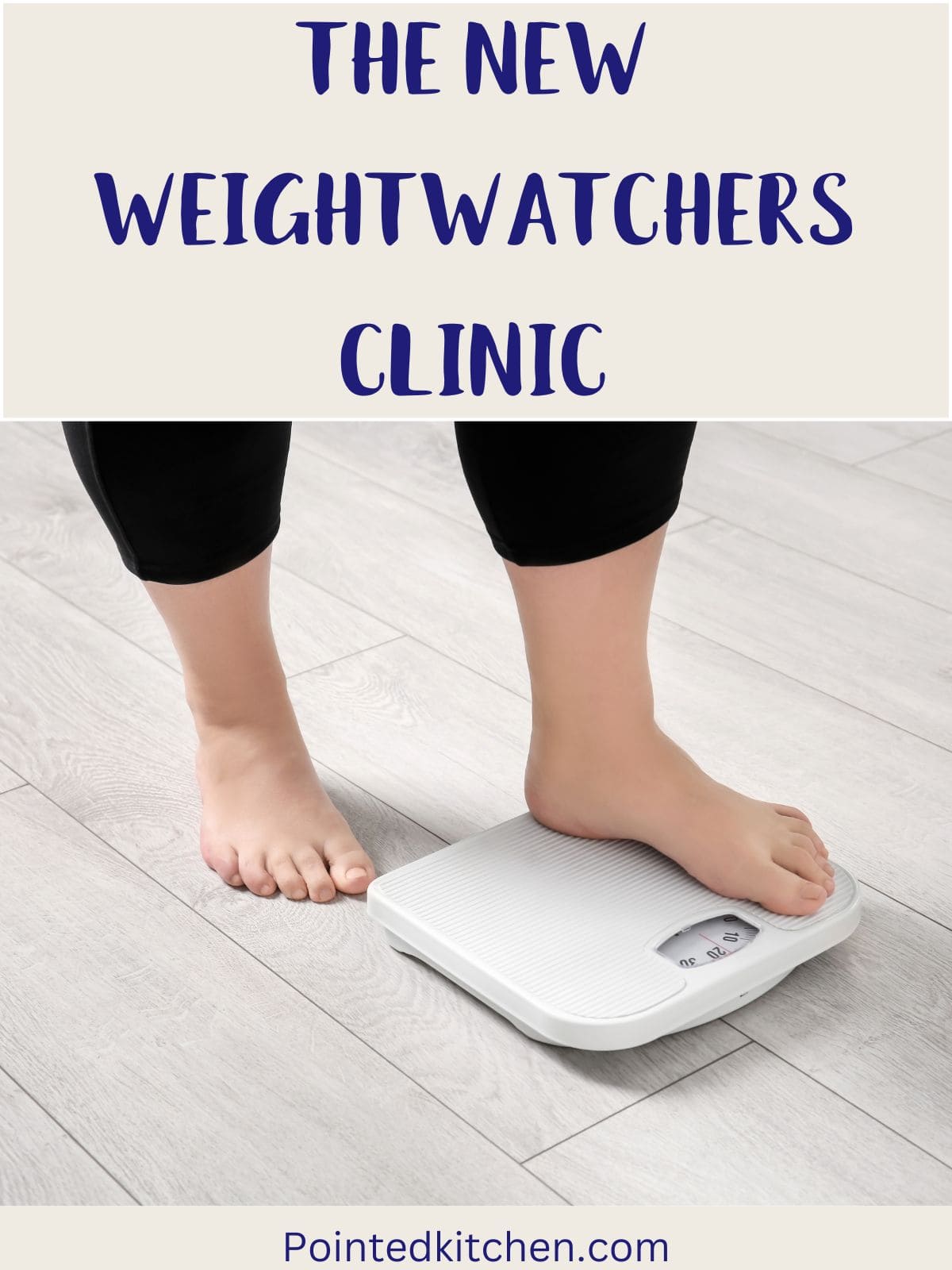I never thought that I would be writing about Weight Watchers and Ozempic. But, here I am, doing exactly that! As I am sure you know by now, Weight Watchers (now known as WW) has had a significant shift in their business model to include offering injectable weight loss medications (GLP-1 medications) to members who qualify.
Weight Watchers has launched a new program called “WeightWatchers Clinic“. The program provides members with virtual access to doctors who can prescribe medications such as Wegovy, Zepbound and Ozempic. Whilst on this program members are offered medical supervision and one to one monitoring by a clinician.
Alongside this, Weight Watchers will offer their traditional behavioural and lifestyle support and give nutrition guidance specifically tailored for people using these medications.
This move is such a major pivot for a company who, for decades, have sold the idea that you lose weight by diet and exercise alone!

But weight loss medications like Ozempic, Wegovy, and Mounjaro have become the talk of the healthcare world, promising significant weight loss results.
So, perhaps for WW, it was jump on the bandwagon or go under forever!
In recent press releases WW have acknowledged that GLP-1 medications are useful. But they stress that they are even more effective when combined with lifestyle changes, such as the ones they have been nudging us towards for years.
But how do these medications work, and what might you know before considering them? I will also try to break down the pros and cons, as I see them, of these new treatments.
Please note that I am not a medical professional. The information provided in this article about Weight Watchers and GLP-1 medications is for educational purposes only. Readers should always consult with a licensed healthcare provider before starting any new medication or making changes to their medical treatment plan. The use of GLP-1 medications requires proper medical supervision and guidance. This article is not intended to replace professional medical advice, diagnosis, or treatment.

How Do The GLP-1 Medications Work?
These medications belong to a class called GLP-1 receptor agonists. In very simple terms, they mimic a natural hormone that we have in our bodies that:
- Tells our brain when we're full
- Slows down how quickly food leaves our stomachs
- Helps control our blood sugar levels
- Reduces cravings and appetite
So, I suppose you could think of it like having a natural appetite control system that's been turned up to work more effectively. Whilst our naturally produced GLP-1 only lasts for a few minutes after release, these medication are said to stick around for up to 14 hours.
These injectable weight loss medications are designed to be a treatment for chronic obesity and will only work when they are being taken. Once you come off them, weight loss will only be maintained with lifestyle changes.
The Pros
1. Weight Loss Results
- Studies suggest that people can lose somewhere between 5% -20% of their body weight
- These losses are typically sustained while taking the medication
- Some studies have suggested that these medication are more effective than other traditional weight loss methods
2. Health Benefits
- It can improve blood sugar control
- Weight loss from the medication may reduce the risk of heart disease
- Weight loss from the medication can lower blood pressure in many cases
- It is also said that it may help with fatty liver disease
3. Convenience
- No strict diet rules (though healthy eating is recommended)
The Cons
- Side Effects
Like many other medications, these weight loss injections may have side effects. These could include:
- Digestive issues & feeling sick, especially when first starting
- Possible constipation or diarrhoea
- Some people experience fatigue
- Potential risk of thyroid tumors (rare)
2. Practical Considerations
- They are expensive to buy, although prices may reduce.
- Currently, there is limited insurance coverage for these medications
- There are current supply shortages
- To maintain results you need to take the medication.
3. Long-term Unknowns
- As with other ‘relatively’ new medications, long term effects are unknown.
- There is limited data on very long-term use
- There is a lot of uncertainty about effects after stopping the medication.
Weight Watchers and GLP-1 Medications
As I explained earlier, WW have named their new program "WeightWatchers Clinic” and they claim that it represents a comprehensive approach to medical weight loss. Here is a detailed look at their implementation plan:

How does the Weight Watchers Clinic work clinically?
Members have virtual access to doctors and clinicians who are able to prescribe a variety of injectable weight loss medications. Strict medical screening is undertaken prior to members being offered the medication.
Obviously, as with most medications, ongoing monitoring is needed and this is done through regular check ins with the healthcare team.
How does the Weight Watchers Clinic Integrate with the Existing Programs
For members using the injectable weight loss medications, specialised coaching will be offered alongside the traditional WW behavioural and lifestyle support. A modified Points system is also offered to members using the injectable weight loss medications.
Online tools
A dedicated online tool is used for medical consultations and, medication tracking is added to the existing WW app. Automated reminders for injection schedules are incorporated within these online tools as well as somewhere that members can monitor and report their side effects.
Support Systems
Weight Watchers are offering specialized support groups for members using GLP-1 medications, where they get access to dieticians who are used to working with these medication. Members can also share their experiences online with other members using the medications.
Cost Structure
The subscription for the WW Clinic is different to the traditional WW membership. It is best to contact WW about this or to look at the information provided on their website. They say that they are able to help with insurance assistance and offer flexible payment plans for members.

Rollout of the WW Clinic
The initial launch for this new WW service was only within select markets with a gradual expansion, according to demand and to provider availability. The program will be refined based on member feedback. Eventually it is planned that the service will become available nationwide.
It is obvious that Weight Watchers is committed to this new program. They have sunk a huge amount of money into setting up the WW Clinic and buying the Telehealth platform that members will use. See more information on this here!
The Bottom Line
It is obvious that these medications represent a significant advance in weight loss treatment. However, they're not magic pills. There is lots of evidence that suggests that they work best when combined with healthy eating and regular physical activity.
The decision to start these medications should be made extremely carefully. The decision to start on these medications should be made with a healthcare provider, who will consider your individual health situation, your goals, and your ability to commit to long-term treatment.
Remember that while these medications are promising, they're new medical treatments that require proper medical supervision. They're not appropriate for everyone, and the decision to use them should be made as part of a comprehensive weight management plan.
What are your thoughts about Weight Watchers introducing these medications into their program? Please do let me know in the comments below. I must admit, I am very surprised that Weight Watchers has introduced this option and I really don't know how I feel about it. I really am interested in your view!


Leave a comment!